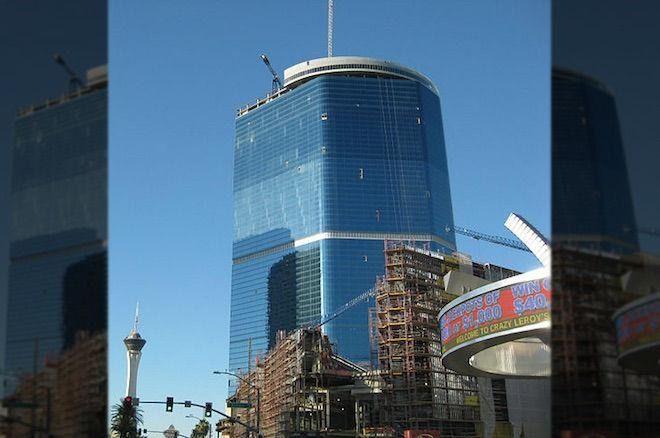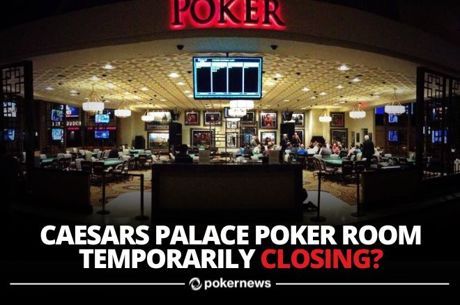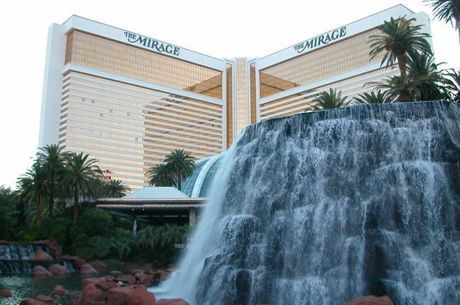Inside Gaming: The Drew Las Vegas Announces Plans for 2020 Opening

This week's installment of Inside Gaming shares news of the planned-for opening of a new casino-resort on the Strip in Las Vegas, tells of Uruguay's plan to block international gambing sites, looks in on Japan's progress toward introducing casinos, and recommends a piece exploring how the impending sports betting ruling might affect Sin City.
Purchasers of Unfinished Fontainebleau to Open New Casino-Resort
Last fall we shared the news that the unfinished Fontainebleau Las Vegas property on the Las Vegas strip had been sold by Icahn Enterprises L.P. and its majority shareholder Carl Icahn for $600 million, netting a $450M-plus profit for Icahn's group.
This week came the news that buyer Steven Witkoff's New York-based real estate firm had struck a partnership with Marriott International to open the casino-resort in 2020 under the name The Drew Las Vegas.
The announcement of plans was made Monday, ahead of which those involved told the Associated Press "that the property will feature a casino, approximately 4,000 rooms and suites, convention and meeting space, and a variety of entertainment, nightlife, retail and dining options," reports Fox5 Vegas. The new property's unique name memorializes Witkoff's deceased son, Andrew "Drew" Witkoff.
Located near the Circus Circus and SLS on the north end of the Strip, the property will also include a JW Marriott and Marriott's EDITION boutique brand.
The site originally was home to the Thunderbird Hotel and Casino that opened in 1948, later renamed the Silverbird and then El Rancho before closing in 1992. Fontainbleau Resorts purchased the property in 2000, and after imploding El Rancho bought additional acreage and began construction that stalled prior to the 2010 sale to Icahn.
Construction on the new casino-resort is scheduled to begin this year. If the 2020 target date is met for the opening, The Drew Las Vegas will likely be one of two hotel-casinos opening on that end of the Strip that year, after Resorts World Las Vegas last year pushed back its opening to 2020.
"What you see there now is a skeleton of what you're going to see in the future... that's what people are going to remember," said Clark County Commissioner Steve Sisolak, alluding to the unfinished 63-story blue building that has stood vacant for many years (pictured above).
Uruguay to Begin Blocking Offshore Gambling Sites
Online gambling has long been prominent in Uruguay, with sites from around the world advertising freely in the country while attracting much business from the country's inhabitants. But that's about to change says Luis Gama, Director of the National Directorate of Lotteries and Quinielas.
This week El Pais reported Gama's announcement that within days his department will begin working with other entities to begin detecting and blocking international gambling sites. Among the other entities to be enlisted in the effort are the Unidad Reguladora de Servicios de Comunicaciones, telephone and credit card companies, and the Banco Central del Uruguay.
Gama directly connected the new effort with the promotion of the state-sanctioned Supermatch site, noting how previous efforts to curb gambling on non-Uruguayan sites had translated into increased traffic on Supermatch. Bwin and Bet365 were among the offshore sites Gama specifically mentioned as being the most frequented by Uruguayans.
The director also noted that following these renewed efforts to "clean up" online gambling in Uruguay, the country may analyze the feasibility of allowing companies to bid for online gaming licenses within the country.
Japan Weighs Legislation for New Casinos, Considers Restricting Visits
Meanwhile over in Japan a plan was presented to lawmakers this week to limit the number of times people can enter casinos each month, reports The Japan Times.
The plan was put forward along with other measures designed to curb gambling addiction, although it was immediately opposed by the country's Liberal Democratic Party led by Prime Minister Shinzo Abe.
If implemented, the plan would apply both to Japanese nationals and visitors, allowing for up to three visits in a seven-day period and 10 visits within 28 days. Visits would be tracked by government-issued ID cards with embedded chips.
The proposed measures follow legislation from last year ending the country's ban on casinos, with the new law allowing them only as part of integrated resorts including hotels and/or event venues. Limits have been placed on the size of casinos (no larger than 15,000 square meters or a little over 160,000 square feet) with the casinos not to occupy more than 3 percent of a resort's land space.
The bill containing the new gambling provisions is due to be submitted by the end of March.
The Japanese government is hopeful the introduction of casinos, even in a measured way, will significantly add tourism and bolster the economy. Many industry companies have already demonstrated considerable interest to enter the market.
According to a Forbes report last fall, "some estimates have put the addressable market for casino gaming in Japan at $30 billion, a market that would rival Macau."
Vegas Awaits Supreme Court Sports Betting Ruling
Finally, the entire industry remains on pins and needles in anticipation of the upcoming ruling from the United States Supreme Court in the case of Christie v. National Collegiate Athletic Association, with the court's decision regarding New Jersey's appeal against the federal prohibition on sports gambling potentially having monumental effects on the future of sports betting in America.
The ruling could come as soon as early March or as late as the end of June. For some interesting reading in the meantime, check out David Purdum's essay for ESPN this week outlining the current debate and describing how some in Las Vegas are preparing for what could be a massive change to Sin City's status in the gambling world, titled "Will Vegas ever be the same?"
Photo: "Fontainebleau-Las-Vegas-2-July-2009" (adapted), Neaco, CC BY-SA 3.0.









